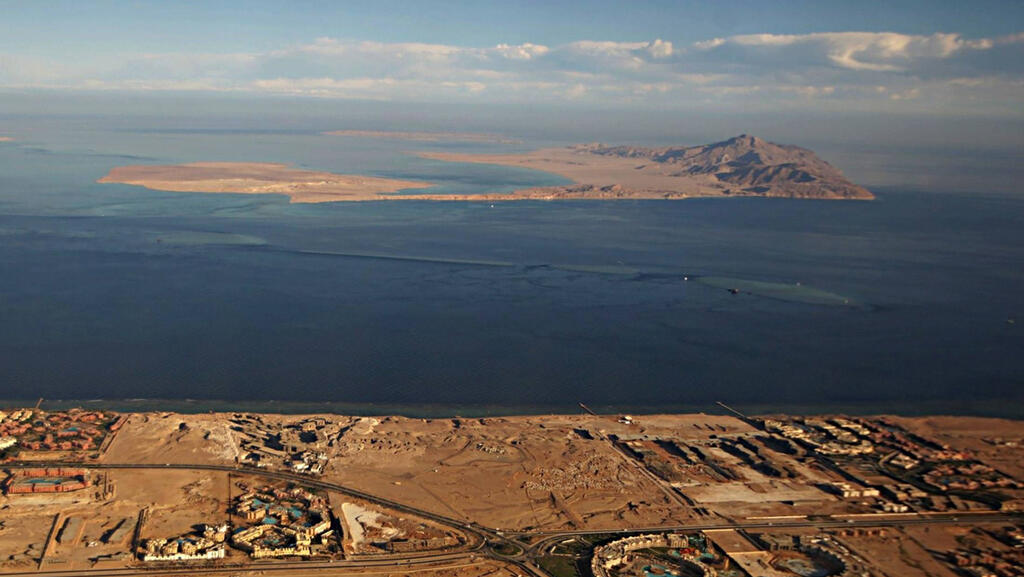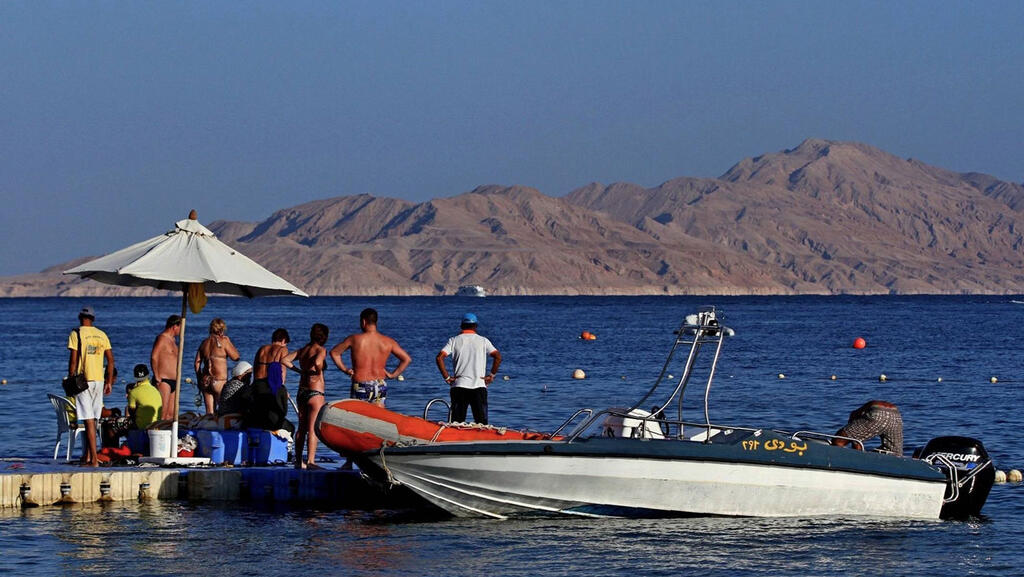The Islands of Tiran and Sanafir, which lie 200km south of Israel's southernmost city of Eilat, were under the Israeli control for almost 15 years.
They were returned to Egypt following the Camp David Accords, and transferred to Saudi control in 2017. Now, following steps for normalizing relations with Saudi Arabia, the international forces stationed on the islands will leave, with Saudi Arabia left to maintain the freedom of navigation in place of Egypt. At the end of 2022, the islands are expected to become hotspots for tourists.
Over 60 years ago, David Ben Gurion believed Tiran would be a part of Israel. “Hebrew settlement existed in Tiran – named Yotvat in Hebrew – over 1,400 years ago. Eilat will become the main southern port of Israel, and Tiran will be part of the Israeli state,” he said.
Until 2016, cargo ships heading to Eilat’s port coordinated their passage with Egypt, the Israeli navy did so as well.
Following the announcement that Israeli flights will be allowed to use Saudi airspace, the U.S. announced Friday that the American forces stationed on the islands will depart at the end of 2022.
U.S. President Joe Biden approved the agreement, saying he’s considering the interests of all parties regarding the islands, including Israel’s.
Jerusalem consented to the departure of American forces in 2021, with conditions that Saudi Arabia will follow the commitment of Israel’s peace agreement with Egypt and maintain freedom of navigation in the Tiran straits.
Dr. Nahum Shila, an expert on Saudi Arabia and the Gulf States at Tel Aviv University, explained that Saudi Arabia and Egypt signed an agreement in 2016 giving the Gulf nation control of the islands. The kingdom planned to construct a bridge to connect the islands, but the decision was not well received in Egypt.
Shila explained that the agreement was relevant to Israel as well, having to negotiate freedom of navigation with Saudi Arabia. “Israel had a problem, no freedom of navigation in the islands meant a blockade to Eilat’s port. It even served as a catalyst for the 1967 Six Day War," he said.
"Following Biden’s visit to the region last week Israel removed its objection to the Saudi rule and the removal of the American forces.”
However, Shila was not convinced that Saudi Arabia would keep its word. “The Middle East is fickle, and anyone can turn on anyone, depending on Saudi Arabia’s mood. One major occurrence like extremist uprising and regime changed is enough to impact the freedom of navigation. Currently, however, this is an unlikely scenario,” he said.
He added that Israel held negotiations with the U.S. and demanded guarantees.
“The U.S. didn’t commit to international action in such a case, but it made Saudi Arabia declare that they will maintain freedom of navigation, and the U.S. said it will see to freedom of navigation in the Red Sea.”
Dr. Yonatan Freeman, from the Hebrew University’s Political Science department, also emphasized the importance of freedom of navigation.
“There’s no doubt that if you look at the peace agreement with Egypt, there are clear interests on all sides, to maintain freedom of navigation in the area.”




